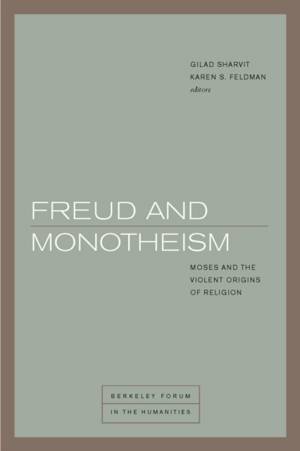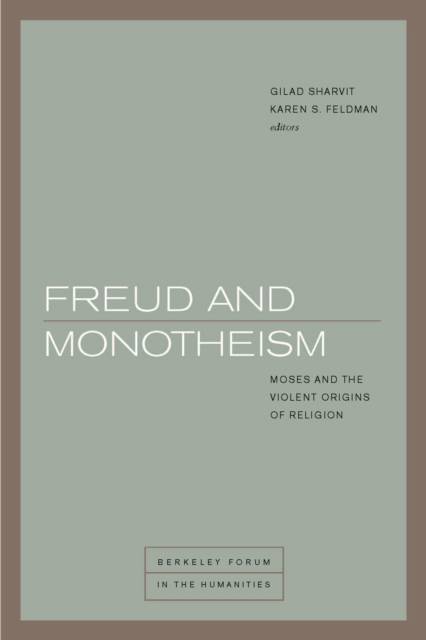
En raison d'une grêve chez bpost, votre commande pourrait être retardée. Vous avez besoin d’un livre rapidement ? Nos magasins vous accueillent à bras ouverts !
- Retrait gratuit dans votre magasin Club
- 7.000.000 titres dans notre catalogue
- Payer en toute sécurité
- Toujours un magasin près de chez vous
En raison de la grêve chez bpost, votre commande pourrait être retardée. Vous avez besoin d’un livre rapidement ? Nos magasins vous accueillent à bras ouverts !
- Retrait gratuit dans votre magasin Club
- 7.000.0000 titres dans notre catalogue
- Payer en toute sécurité
- Toujours un magasin près de chez vous
Freud and Monotheism
Moses and the Violent Origins of Religion
45,45 €
+ 90 points
Description
Over the last few decades, vibrant debates regarding post-secularism have found inspiration and provocation in the works of Sigmund Freud. A new interest in psychoanalysis's relation to society has emerged, allowing Freud's account of the interdependence of religion, ethics, and violence to gain currency in recent debates on modernity. In that context, the pivotal role of Freud's masterpiece, Moses and Monotheism, is widely recognized.
Freud and Monotheism critically examines a range of discourses surrounding Freud and Moses, taking as its entry point Freud's relations to Judaism, his conception of tradition and history, his theory of the mind, and his model of transgenerational inheritance. Highlighting the broad impact of Moses and Monotheism across the humanities, contributors from philosophy, comparative literature, cultural studies, Jewish studies, psychoanalysis, and Egyptology come together to illuminate Freud's book and the modern world with which it grapples.Spécifications
Parties prenantes
- Editeur:
Contenu
- Nombre de pages :
- 248
- Langue:
- Anglais
- Collection :
Caractéristiques
- EAN:
- 9780823280032
- Date de parution :
- 05-06-18
- Format:
- Livre broché
- Format numérique:
- Trade paperback (VS)
- Dimensions :
- 150 mm x 226 mm
- Poids :
- 340 g

Les avis
Nous publions uniquement les avis qui respectent les conditions requises. Consultez nos conditions pour les avis.





